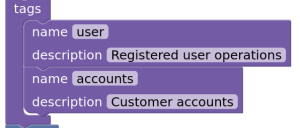x-openai-isConsequential that you can add to your OpenAPI description, to indicate which endpoints should not be called without a human confirmation step.
I’m not doing much with OpenAI right now, but I do plenty with OpenAPI and the question “how do I add this field to my existing API description?” is one that I can answer! What’s more, you can use the advice in this post to add other extensions or additions to your OpenAPI descriptions using Overlays, this advice isn’t OpenAI-specific, but it’s used in the examples. Continue reading

